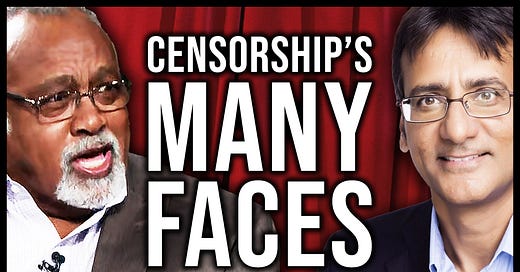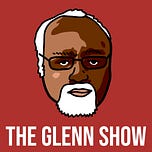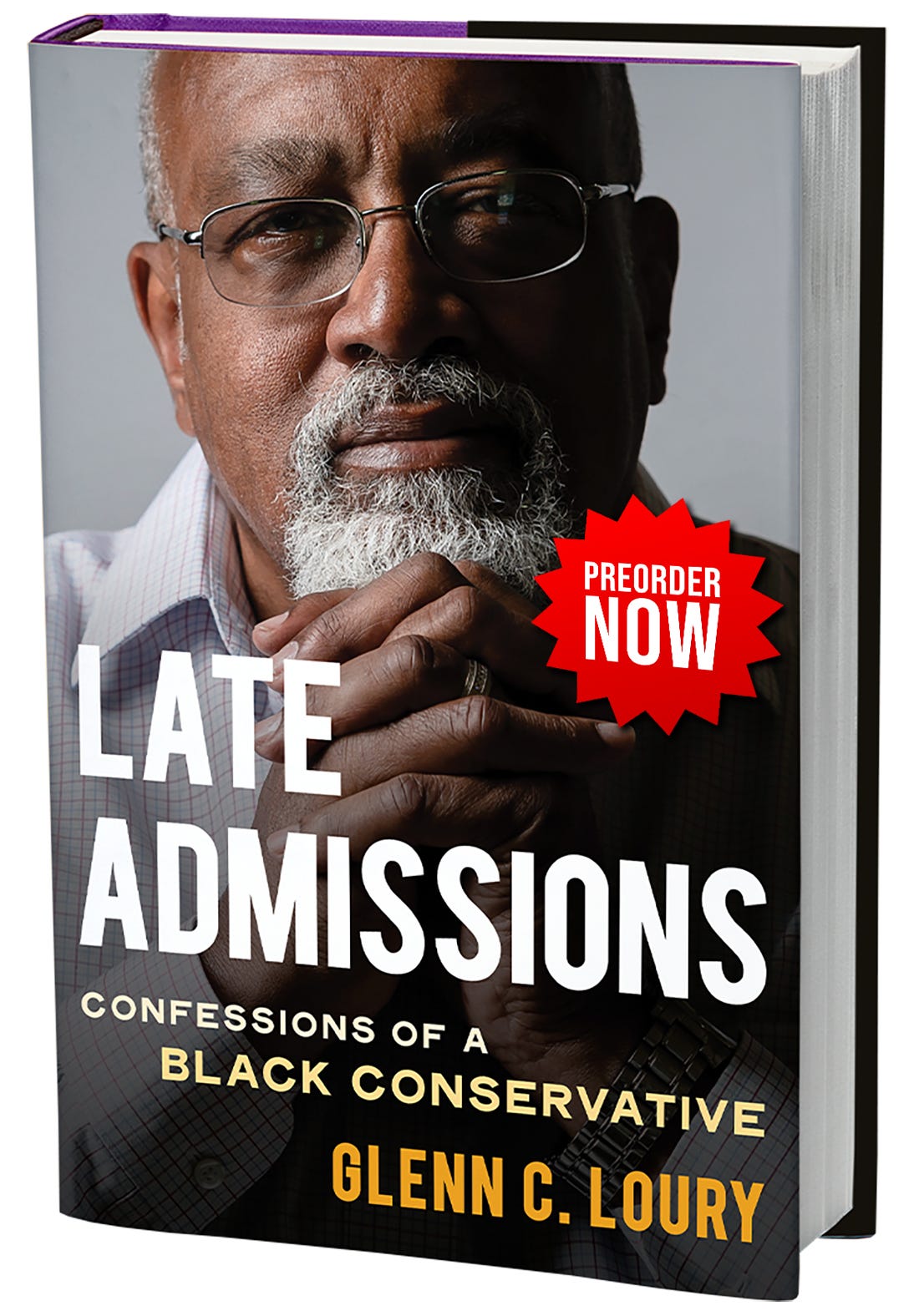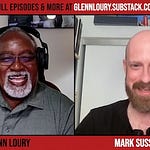My guest this week is Rajiv Sethi, professor of economics at Barnard and Columbia. We’ve collaborated on papers and pedagogical projects, we’ve criticized each other’s work, and we’ve remained remained friends for decades now. In this conversation, we run the gamut, from Israel-Palestine to free speech to some fairly technical economics talk to, what else, my memoir, Late Admissions: Confessions of a Black Conservative.
The Gaza War has brought the issue of campus speech back to the fore. Some students and faculty fear that saying the wrong thing about the conflict will put them on the wrong end of censorious mob, and the public positions taken by many university administrations aren’t helping. But Rajiv goes back to my essay, “Self-Censorship in Public Discourse,” to explain why administrative neutrality is a necessary but insufficient condition to solve the self-censorship problem on campus. Rajiv wrote a very nice blurb for my forthcoming memoir, and we discuss how game theory informs the book’s content and structure. We then delve into Rajiv’s fascinating work on police use-of-force and the predictive value of markets. The pioneering economist Bob Solow recently died. He was my dissertation advisor back in the 1970s at MIT, and he mentored a staggering number of other influential economists. Rajiv spent some time tracing his influence over the profession. And finally, I ask Rajiv whether he takes pride in the accomplishments of his fellow Indian-Americans, and his answer is surprising!
It’s always a pleasure to reconnect with Rajiv. I hope you enjoy this conversation as much as I did.
Sign Up for City Journal’s Newsletter
City Journal provides rigorous analysis that allows you to reach your own conclusions, rather than rehashing ideologically “safe” talking points. Explore it for yourselves and sign up for their free newsletter today.
0:00 The conversations that aren’t happening on college campuses
4:16 Staying informed about Israel-Palestine
9:22 Glenn: Don’t subject me to a loyalty test
12:14 Rajiv: High-minded principles alone won’t solve the self-censorship problem
18:11 “The Naked Emperor Equilibrium”
21:52 The game theoretical aspect of Glenn’s memoir
25:35 An homage to Thomas Schelling
27:31 Rajiv’s work on police use-of-force, then and now
30:36 The predictive value of political betting markets
42:44 Robert Solow’s intellectual family tree
46:16 The lopsided distribution of elite economists
49:08 Rajiv: Big econ departments should take more chances on candidates
51:52 The mind-boggling geographical variation in police killings
56:09 Why Rajiv doesn’t take pride in other Indian-Americans’ success
Recorded January 26, 2024
Links and Readings
Noam Dworman’s podcast, Live from the Table
Norman Finkelstein and Eli Lake on Live from the Table
Benny Morris’s book, One State, Two States: Resolving the Israel/Palestine Crisis
Rashid Khalidi on Live from the Table
Benny Morris on Live from the Table
Ilan Pappé’s book, The Ethnic Cleansing of Palestine
Glenn’s conversation with Omer Bartov
Glenn’s conversation with Norman Finkelstein
Norman Finkelstein’s book, I’ll Burn That Bridge When I Get to It!: Heretical Thoughts on Identity Politics, Cancel Culture, and Academic Freedom
Glenn’s conversation with John Mearsheimer
John Mearsheimer and Stephen Walt’s book, The Israel Lobby and U.S. Foreign Policy
University of Chicago’s 1967 Kalven Committee Report
University of Chicago’s 2014 “Chicago Principles” on freedom of expression
Elisabeth Noelle-Neumann’s book, The Spiral of Silence: Public Opinion—Our Second Skin
Timur Kuran’s book, Private Truths, Public Lies: The Social Consequences of Preference Falsification
Thomas Schelling’s book, The Strategy of Conflict
Rajiv and Brendan O’Flaherty’s book, Shadows of Doubt: Stereotypes, Crime, and Pursuit of Justice
Rajiv and Brendan O’Flaherty’s article, “Stereotypes, Crime, and Policing”
Gunnar Myrdal’s book, An American Dilemma: The Negro Problem and Modern Democracy
Rajiv’s Substack, Imperfect Information
Rajiv’s Substack post, “Economic Growth and the Growth of Economics: Reflections on Robert Solow”
Ralph Ellison’s essay 1970 essay, “What America Would Be Like without Blacks”















Share this post